Visiting the Coynes in Ireland: Sheep, Brown Bread, and the Nameless Oddness of Diaspora
This week I visited Rahugh in the middle of Ireland, where family hail from on my dad’s side. Learned a little about farming, how delicious rashers can taste, and what Ireland thinks of U.S. politics

In 2019, sometime in May, my uncle Chris called. I was trying out LA for a place to live at the time.
Uncle Chris told me I had to get over to Ireland and meet the Coynes. The patriarch of the family, named John Joe, was getting up there in years, and he was a trove of information. My great-grandfather James Coyne, who left Ireland at the beginning of the twentieth century, was his uncle. James Coyne, my grandfather who died young in 1964, was his first cousin. John Joe is the last of that generation. Apparently, I had four great-aunts who didn’t live far away from us on Long Island, but I wasn’t told about their existence until just after the last one had passed at around age ninety a few years ago. (Yes, I have feelings about that).
“In the meantime, before you get over to Ireland,” Uncle Chris said, “let me ask Pat Coyne, our cousin, to add you to the Facebook group.”
“There’s a Facebook group?” I said.
(Apparently diaspora and reconnection can be deeply awkward, clunky, surprising, and randomly delightful, so I’ve learned).
I was added to the Facebook group, “Coyne Clan Offaly & Westmeath,” run by the de facto family historian Pat Coyne.
Apparently when Uncle Chris arrived in town a few years ago, he hadn’t yet told anyone he was there and he stopped by a pub first. One of my relatives got a call from someone at the pub who had eyed Chris. “Looks like one of your own is here. Better come collect him!”
The person said to Chris: “I knew you were a relative because you’re the spit of Mark!”
I myself saw some photos of cousin Mark on the Facebook page and at first thought that they were my Uncle Chris. “Chris must be a very handsome man,” cousin Mark said when I told him this.
My thoughts are not yet formed, if they ever will be, on diaspora and departure. I will say that I just spent four days with various Coynes in Rahugh, the ancestral town. Many branches of my family go back there at least as far back as the early nineteenth century, but probably much further — we just don’t have extant records earlier than that.
This is was the structure where my great (times three) and great (times four) grandparents lived, and probably ancestors before them. Now it’s very quiet and still.
Quiet except for the soft rain that day and the sheep bleating one field over.
I talked with Mark who brought me to this site and I said how important it is to be around historic structures and streets to remind you of the scale of your life. “We’re just a flash!” he said. “Just a MOMENT.” Then he reflected: “I’ve never wanted to leave Rahugh, never live anywhere else, ever. Now that I know that this house is here, since Pat showed me, it makes sense. There was a kind of pull. I hope our children stay here, too.”
I’ve been getting a cold since a day or two before my trip to Rahugh, and it was in full force during my trip. Two out of the four mornings I woke up there (in guest bedrooms of cousins’ houses), my first thought was: How am I going to get through this coming day? I had six cousins around my age, and their spouses, and twenty young cousins to see, as well as John Joe and his wife, Bridget. Also, I was due to go on farm walks, feed lambs and walk calves — although I didn’t know what that last one entailed.
(I had more of a flu than a cold — chills and sweats and a cough and pain in most muscles of my body.)
Each of those mornings, I came into the warm kitchen and got to talking with my hosts, and they put out fresh brown bread and butter, and heaped rashers and sausage onto my plate, and we poured the first of many mugs of tea, and within a few minutes I felt so happy chatting away with them that I knew getting through the day wouldn’t be a problem at all.
(The cough syrup and anti-inflammatory painkillers my cousin insisted on buying me might’ve helped, too).
These past five or six weeks have been filled with socializing, mostly with old friends from college, and a couple of newer-, but-still-pretty-old friends. I already felt as if I’d said more words, and been more deeply engaged with people, these six weeks than I had in the past couple of years combined.
But the four days spent in Rahugh were spent in company literally every moment of the day from wake-up to sleep (except when I snuck away to take a meeting Wednesday and send a work email Friday to ensure my continued employment…). And we all shared so many ideas and jokes and information I thought my tongue would fall out. I felt at once deeply at home, and like an obvious interloper and object of curiosity. Whatever it was they felt, everyone was peerlessly kind.
One night we exchanged ghost stories and freaked out the children. One story from up the road: the son of [the pastor] of the church was sent to lock up at dusk one night, he was about fifteen or sixteen. He ran home totally out of breath, shaking and white as a sheet.
His dad asked him what had happened, and his response, still shaking, was: “You’ll never know what it is I saw.”
“You’ll never know!” one of my cousins said. “Not ‘maybe it’ll come out in a few years. No. He NEVER said what it was he saw, and he died young, at the age of 27 in an accident.”
(Ireland seems pretty haunted!).
My cousin Mark told a few off-color jokes, one of which I’ll bring home to the American Coynes. We all, of course, discussed Kate Middleton’s disappearance and our theories of what’s going on there. Every cousin wanted to hear what I think of Trump, and was also quick to inform me that no one in Ireland likes or respects him, and they all think that there’ll be deep trouble and danger if he’s reelected. The family elder John Joe was particularly forceful with that idea.
(I wanted to confirm that this wasn’t just a Coyne family thing, so I asked one of the school dads at an event what the Irish think of Trump. “Sure, there are a few fringe people who like him here and there, but for most of the country, he’s — well, let’s say, if he weren’t a President, and you just met this man down at the pub one night, he’d be laughed right out of it!”).

I learned about what life looks like in Rahugh. The six children of John Joe and their spouses all live within a mile or so of one another. Everyone takes care of everyone else’s children. Many of my younger third cousins go to elementary school where there are about five students per grade. Two teachers oversee kindergarten through sixth grade. (Since the Coynes and their first cousins the Bartlett kids make up over half the school, they’ve been told not to be too clannish and not to exclude the non-Coyne kids).
I went on a “farm walk” and got to see what cattle farming looks like. Many of the Coynes have their own farms — John Joe and his wife Bridget have sheep; other cousins have cows. My cousin Mark, who was my point of contact before this trip, told me that up until a generation or two ago, absolutely every family had sheep, but they’re hard to make a profit on these days. I was told that wool is so cheap, “you could give it away.” Selling the wool will only cover the cost of shearing the sheep.
This was admittedly difficult to hear as I hope to have sheep someday…
Although my cousins have farms, that’s not their only source of income. Some of them teach and advise at the local university in Athlone — engineering and Agriculture — and some work in administration or teaching or as physiotherapists. For those with bigger farms — like 100 head of cattle — it can sometimes be a punishing schedule. One cousin or another has to be dispatched in cases of cows’ calving, for example. The dairy cows have to be milked twice a day and some of the lambs fed three times a day, among a heap of other tasks.
The weather in Rahugh has been unusual the past year. It’s a wet enough part of the world normally anyway, but the rain apparently hasn’t stopped since last August. Where they would’ve let the cows out to graze in February and March, the rain is so unceasing that they haven’t been able to yet, since doing so would have the fields quickly trampled and browned. I took lunch with five or so farmers after the farm walk and weather was one of the main points of conversation.
Someone told a joke about a man who prayed to God for rain, and then it rained for months.
He went back to amend his prayer, realizing his error:
“Dear God, here I pray that we may always have suitable weather,” he said.
Here’s two Coyne cousins, Claire and John Og, as well as their mother Catriona, giving me a quick Irish lesson in the car. Another Irish lesson was learning that “Óg” sometimes comes after boys’ names to signify “Jr.”
And here’s a great joke by a young man Mark works with:
Yes, he is very witty, that lad.
John Joe (my grandfather’s first cousin) was reared in this house. His son-in-law, David Bartlett, gave me a tour.
Next, the house where my great-grandfather was born and raised, until he left for New York at age twenty. He had I think seven siblings:
I “help” John Joe feed some lambs as he talks family history:
John Joe also spoke about how dire it was in the late nineteenth century here. Ireland was under colonial occupation by the British. For hundreds of years, English landlords had resided on estates with thousands of acres farmed by the Irish (including my ancestors). There was the Famine, which was not in fact a naturally occurring event, as I had been taught in school. The British hoarded and blockaded food in Ireland and didn’t even allow foreign deliveries of food in to help save the lives of starving Irish people. The world looked on helplessly as the British starved the Irish. So far as I can tell, they didn’t think them equally human. (See any parallels to current events?).
“In the late nineteenth and early twentieth century, Ireland was a third-world country,” a cousin told me. “No — really. It was total poverty.”
John Joe told me that four of his uncles and at least one aunt left, because “there’d be nothing for them here.”
“It was ‘leave, or maybe you’ve starve and die,’” another cousin said.
Is this where I get my fierce ingrained sense of justice from? I wonder. It seems to have been there since birth. And the Irish seem to be uniquely vocal on Gaza among their European counterparts.
We did go to an event near Rahugh, in the town Mullingar (they emphasize the final syllable) where my cousins sang a song to St. Patrick as he came up the river on a barge. There was also this:
I’m still pretty sick today, and am in Dublin without any sparkling funny distant relatives to entertain me. Heading back to the States soon. Four days after walking on the moss growing next to the stone home of my ancestors, I’ll be walking along the concrete of New York (and doubtless killing my arthritic foot, which got a nice break walking on the grasses during this visit).
I do feel lucky for this experience, as I feel for many of my experiences. And now it’s a part of me. And hopefully I can come terrorize the family with asinine questions about farming again. Maybe do a “sheep farming” internship.
Unfortunately, my phone — even the newer one I had to buy after the last one bugged out — appears to have kicked the bucket as of yesterday. Some kind of software issue that people at the Apple Store couldn’t figure out, although luckily they DID say: “We’ve never seen anything like this before in all our years at Apple.” Grand!
All that just to say that it was a little harder to get photos and video into this newsletter.
I’ll probably share more sometime, but for the time being when it comes to the deeper ideas, I think language is inadequate — at least words alone, without presence.
I keep thinking about the limits of language — perhaps ironic for someone writing a newsletter. But every moment of existence is beyond language. And I’ve found that many people, particular in my generation and that below us, is obsessed with categorization, with “correct” delineations of things. It could be borne out of less person-to-person conversation and more online dialogue. And maybe the huge stress of life for young people these days, particularly in the States. I don’t know. Just something I’ve been thinking about.
Thank you for reading, and please share and tell your friends!

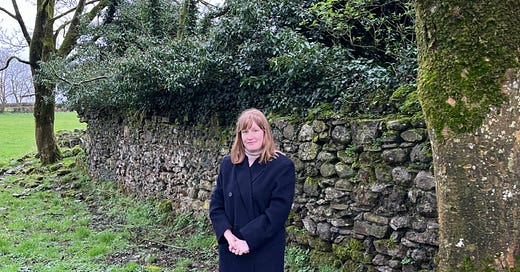


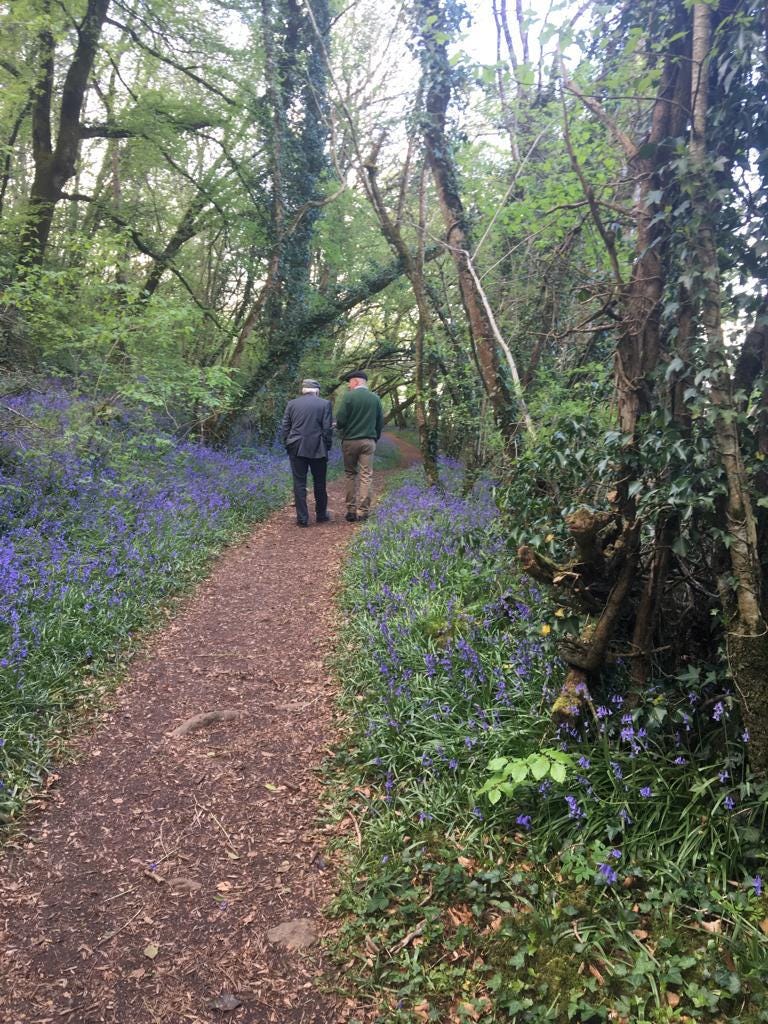

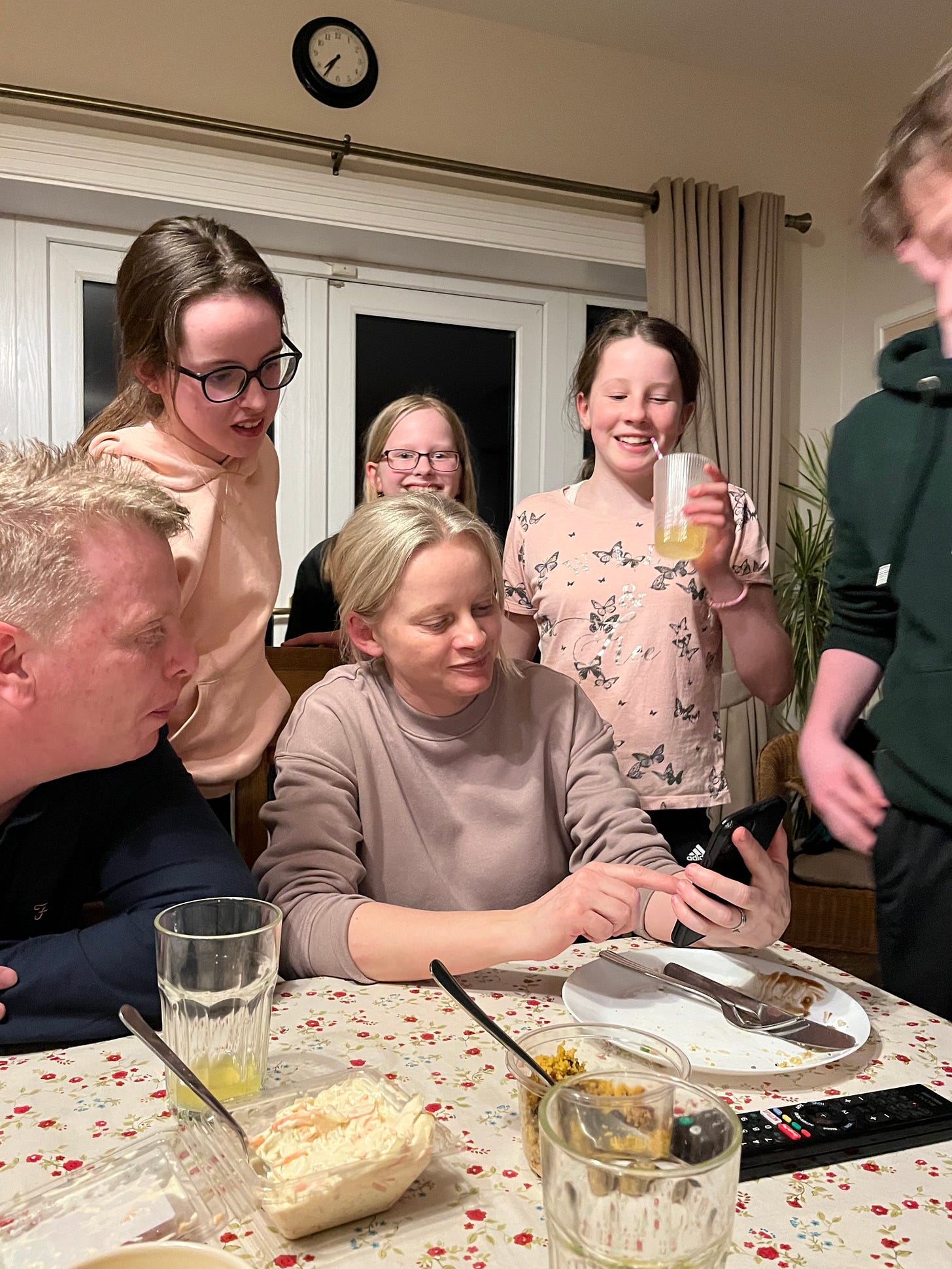
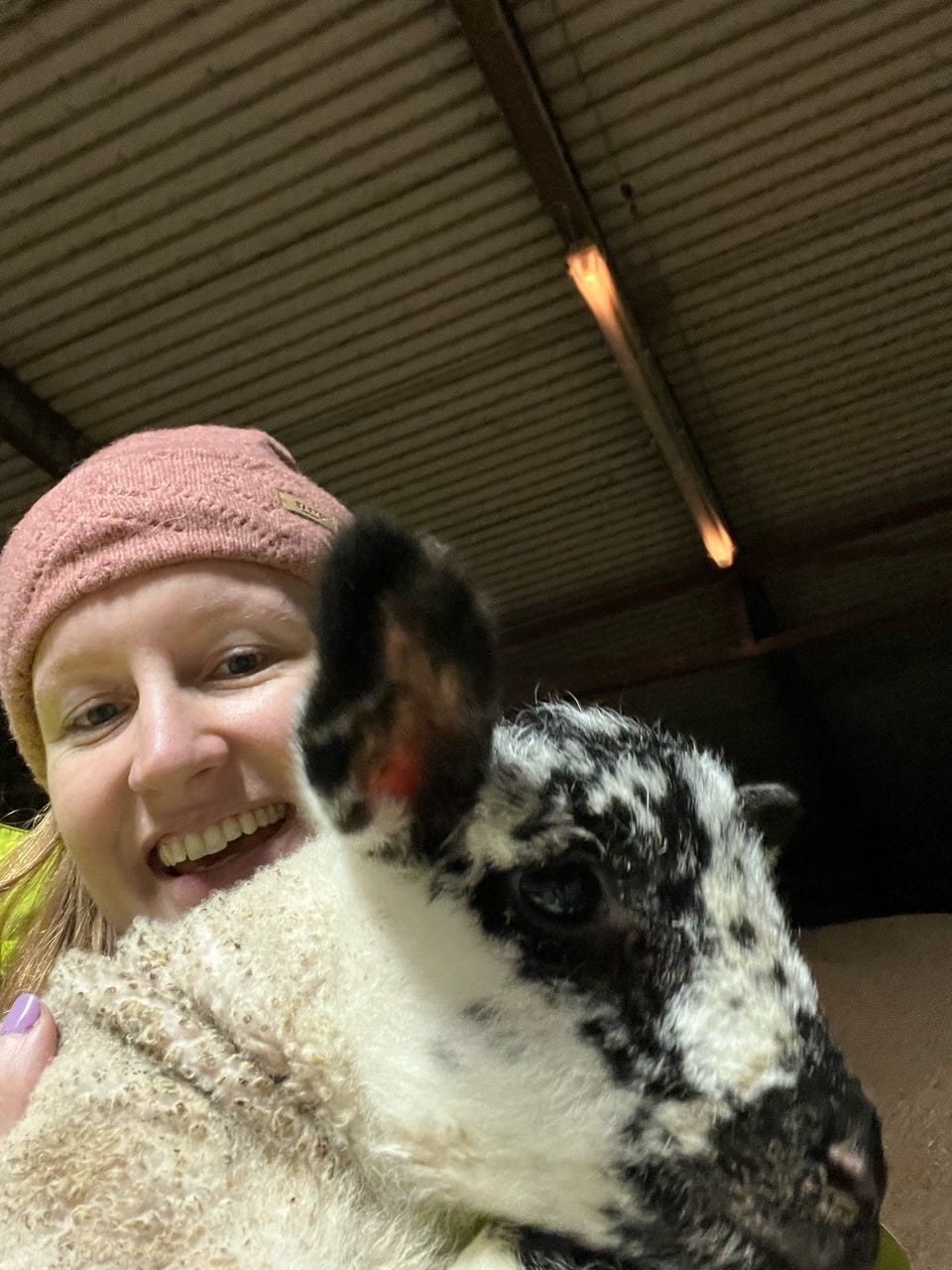

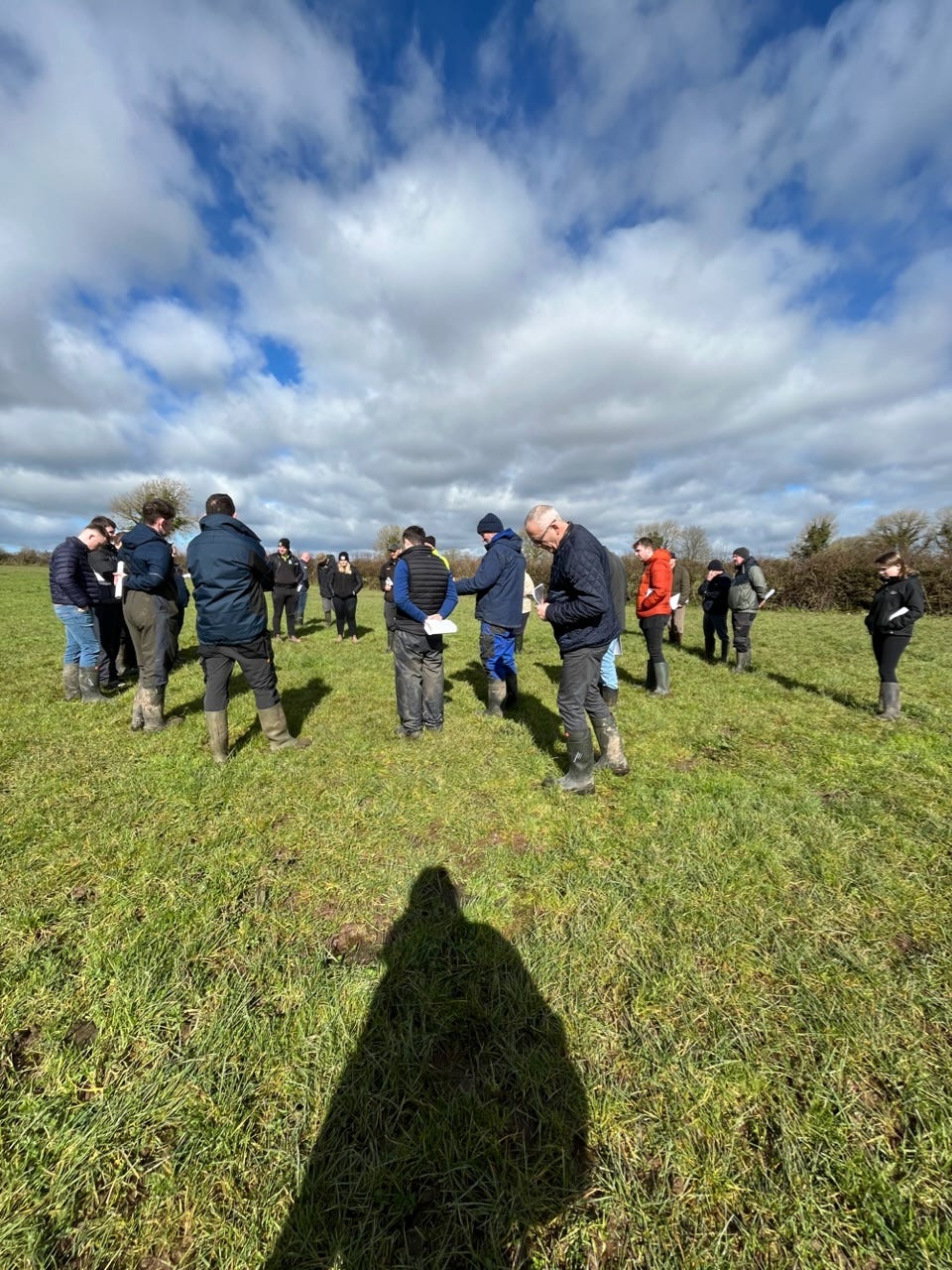
I love a good joke, and none better than a double entendre, but “if there’s work in the bed, he’d lie on the floor” may be on of the most hilarious and delightfully subtle dirty jokes I’ve ever heard! I’ve been giggling about that for the last hour or so. Thanks!